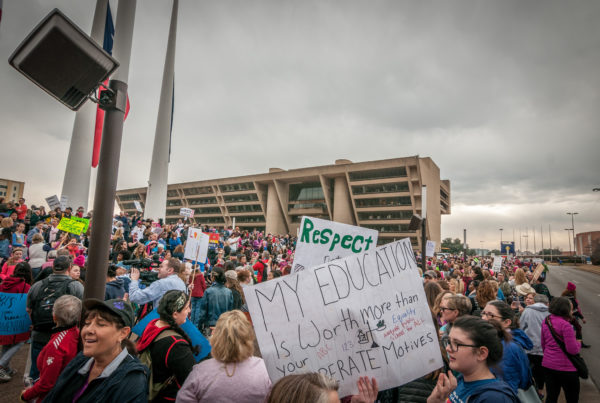The Supreme Court’s 2015 ruling that legalized same-sex marriage didn’t settle every question about the new application of the institution. Friday, the Texas Supreme Court agreed to hear a case out of Houston that will examine whether same-sex spouses of city employees can receive benefits.
The case calls into question the legality of allowing the spouses of Houston’s city employees to receive benefits. Even though the case was dismissed in fall of 2016, pressure from state leaders has encouraged the state’s Supreme Court to hear it again.
Will Weissert, reporter for the Associated Press, says Gov. Greg Abbott, Lt. Gov. Dan Patrick and Attorney General Ken Paxton want to see this case go to court so the state can make a move to limit the scope of the national legalization of gay marriage.
“It’s also difficult to picture exactly where that will leave Texas because the U.S. Supreme Court ruling still legalizes gay marriage,” Weissert says.“The extending of benefits of same-sex couples would seem to fall under that federal ruling.”
The implications of this move on same-sex marriage are obvious, Weissert says, but the case has the potential to be turned into an even larger social issue.
“Patrick and Paxton, while they’re making the legal case, also realize … that this had to do with sovereignty and states rights,” Weissert says.
Oral arguments on the case will be made on March 1, but it’s hard to predict how the case will proceed. Even though the court will hear the case, they don’t necessarily have to rule one way or another. Alabama’s Supreme Court agreed to hear a similar challenge after the U.S. Supreme Court ruling on gay marriage but ended up throwing out the case after they heard the challenge.
“It’s possible that we could get that in Texas, or it’s possible that the state Supreme Court could do something else,” Weissert says “Then we’d have a larger legal question of how that then related to the U.S. Supreme Court.
Written by Morgan O’Hanlon.














